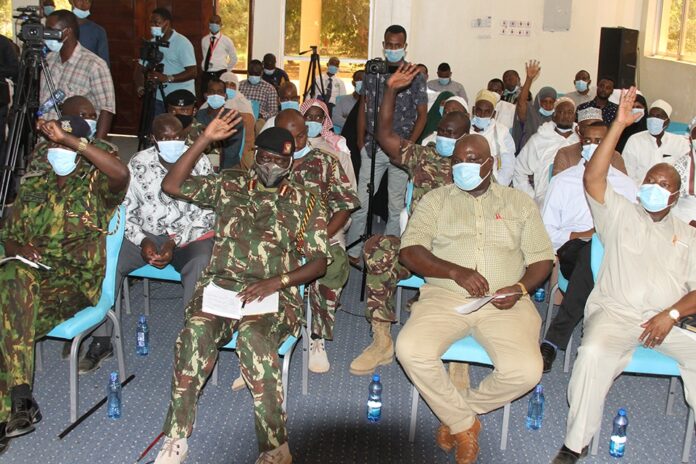A recent study by NWOHU et al., (2023) titled “Early warning mechanism for conflict prevention in Africa: A study of IGAD in South Sudan” published in the International Journal of Social Science, Management, Peace and Conflict Research shows that early warning systems are essential for preventing and managing conflicts in Africa.
“
The critical importance of early warning systems in conflict prevention in Africa, particularly in South Sudan.– NWOHU et al., 2023
In the tumultuous landscape of African geopolitics, the imperative of conflict prevention stands as a beacon of hope. At the heart of this pursuit, the Intergovernmental Authority on Development (IGAD) has played a pivotal role, particularly in the case of South Sudan. This article delves into the intricate web of early warning mechanisms, assessing their evolution, challenges, and the profound implications of IGAD’s efforts in a region marred by protracted conflict.
Defining Early Warning Mechanisms: A Constant Evolution
Early warning mechanisms are the sentinels of peace, evolving to tackle the complex challenges faced by African nations. They encompass a range of objectives and components, adapting to the shifting sands of political, social, and economic landscapes. From humble beginnings, these mechanisms have metamorphosed into sophisticated tools wielded by regional organizations, with the ultimate goal of preventing conflicts before they escalate.
Navigating Challenges and Opportunities
As with any noble endeavour, the road to effective conflict prevention is fraught with challenges. Political will, institutional capacity, coordination, and communication emerge as key factors shaping the success of early warning mechanisms. In the African context, where diversity is both a strength and a challenge, the intricacies of governance and regional cooperation add layers of complexity.
IGAD’s Odyssey in South Sudan: Assessing Impact
The spotlight turns to IGAD’s role in South Sudan, a nation ensnared in a civil war since 2013. How has IGAD’s early warning mechanism fared in this crucible of conflict? The author’s analysis reveals both strengths and weaknesses, providing a nuanced understanding of the organization’s contribution to conflict prevention and resolution in the troubled nation.
Methodology: A Qualitative Expedition
The journey through the intricacies of conflict prevention employs a qualitative research design centred around a case study of South Sudan within the IGAD framework. Drawing from academic literature, official documents, and reports, the study employs content and thematic analysis, coupled with descriptive statistics, to present a comprehensive picture. At the theoretical helm of this exploration is the structural prevention approach. Focused on addressing the root causes of conflicts – poverty, inequality, governance, and human rights – this framework serves as a compass guiding the analysis. Four pillars – democracy and governance, economic cooperation and integration, social development, and environmental protection – provide a holistic lens through which IGAD’s impact is assessed.
Key Findings: Illuminating Insights
The study’s findings underscore the critical role of early warning systems in conflict-ridden Africa, emphasizing their indispensable nature in regions grappling with prolonged crises like South Sudan. It unveils the challenges faced by IGAD, ranging from political will to resource constraints, offering a roadmap for improvement.
Implications: A Call to Action
For policymakers and practitioners, the study provides actionable insights to enhance conflict prevention strategies in South Sudan and beyond. For researchers and academics, it contributes to the scholarly discourse, offering a methodological blueprint for future studies.
Recommendations: Strengthening the Sentinel
In the face of challenges, the paper puts forth pragmatic recommendations to fortify IGAD’s early warning mechanism. Strengthening institutional frameworks, improving data collection and analysis, enhancing communication channels, and fostering collaboration emerge as key strategies.
In conclusion, the role of early warning mechanisms in conflict prevention is not merely a theoretical construct; it is a tangible force shaping the destiny of nations. As Africa grapples with its challenges, the story of IGAD’s endeavours in South Sudan becomes a testament to the resilience of hope in the face of adversity.
















 The African Research (AR) Index is a comprehensive scholarly directory and database focused explicitly on journal publishers that publish and disseminate African research.
The African Research (AR) Index is a comprehensive scholarly directory and database focused explicitly on journal publishers that publish and disseminate African research.

